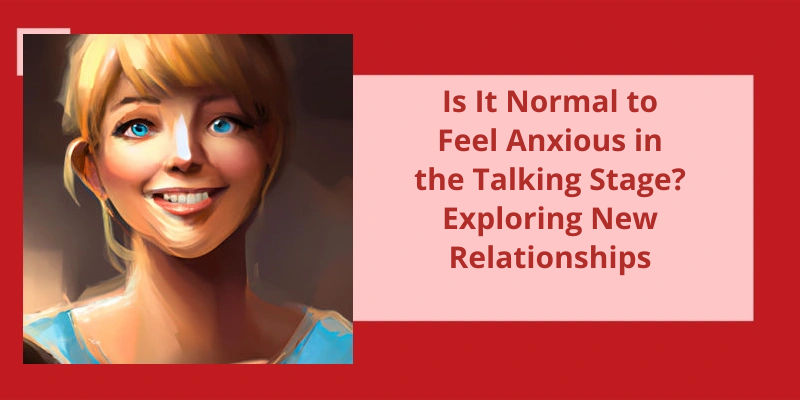It's often said that deep thinking is a trait that sets humanity apart from the rest of the animal kingdom. The ability to ponder and process ideas on a level that goes beyond basic instinct and immediate needs is seen as a valuable quality. However, in a world that values quick decision-making and instant gratification, deep thinking can sometimes be perceived as a negative attribute. Some people believe that being a deep thinker means that you're overly-analyzing situations and overcomplicating things, leading to indecisiveness and a lack of action. In this article, we'll explore the pros and cons of deep thinking and why it's worth considering whether this trait is really something that should be discouraged or embraced.
Is Deep Thinking a Gift?
However, deep thinking isn’t just a gift. It’s also a skill that can be developed through practice, observation, and critical thinking. It requires taking the time to examine ideas in depth and consider different perspectives before making a conclusion. Deep thinkers tend to be introspective and self-aware, always questioning assumptions and exploring new possibilities.
One of the key characteristics of deep thinkers is their curiosity. They’re always asking questions and seeking to understand the world around them. They aren’t satisfied with surface-level answers but instead dig deeper to uncover the underlying meaning and significance of things. This curiosity drives them to explore new ideas, perspectives, and experiences, which further enhances their thinking skills.
It requires curiosity, introspection, and self-awareness to explore the world around us in a deeper way. Deep thinkers are essential to society, bringing new ideas, insights, and perspectives that can lead to innovation and progress. If you’re a deep thinker, embrace your gift and use it to make a positive impact on the world.
How to Develop Deep Thinking Skills
- Read complex material regularly
- Reflect on your experiences and emotions
- Ask thought-provoking questions
- Challenge your own assumptions
- Engage in stimulating conversations
- Practice mindfulness and meditation
- Learn a new skill or subject outside of your comfort zone
- Write down your thoughts and ideas
- Take time to analyze and evaluate information
- Try to see things from different perspectives
While many people may consider themselves to be deep thinkers, the reality is that they’re a relatively uncommon breed. In a world that often values superficiality over substance, those who’re able to truly engage with complex ideas and think critically about the world around them are few and far between. However, despite their rarity, deep thinkers remain a vital and important part of society, bringing unique perspectives and insights that can help us to better understand ourselves and the world we inhabit.
Are Deep Thinkers Rare?
These individuals are known for their ability to analyze complex ideas and concepts, to question norms, and to seek out new paths of understanding. They possess a deep sense of curiosity and a hunger for knowledge that drives them to explore the deeper meaning of things.
Deep thinkers aren’t only rare in modern society, but they’re also often misunderstood and undervalued. Their deep insights and perspectives can be seen as a threat to those who prefer to maintain the status quo and resist change. In a world that values conformity over individuality, deep thinkers can be seen as non-conformist and rebellious.
Yet, despite the challenges they face, deep thinkers continue to persevere. They believe in the power of ideas to change the world and understand that true progress can only be achieved by questioning the status quo and pushing the boundaries of what’s possible.
It isn’t surprising, therefore, that many of the most significant advancements in science, technology, and culture have been made by deep thinkers. From Einstein and Newton to Da Vinci and Socrates, these individuals have left an indelible mark on history and continue to inspire generations of deep thinkers to this day.
The deep thinker may be a rare creature in modern society, but they’re a precious one. They bring a unique perspective, a questioning mind, and a hunger for knowledge that are essential for our collective growth and development. So, let’s celebrate and cherish our deep thinkers, for they’re the ones who’ll lead us to a brighter future.
With this in mind, let’s delve deeper into the benefits of being a deep thinker and how to harness this skill to reach your full potential.
Is It OK to Be a Deep Thinker?
One of the most significant benefits of being a deep thinker is that it can help you make informed decisions. By taking the time to analyze and consider all angles of a situation, you’re more likely to come up with a well-thought-out plan of action. This can be incredibly useful in both personal and professional situations, as it can help you avoid making impulsive choices that you might later regret.
In addition, being a deep thinker can enhance your creativity. When you allow yourself to ponder complex ideas and concepts, you may find that your mind starts to generate new and innovative solutions. The more you explore these ideas, the more your brain becomes attuned to abstract thinking, which can help you approach problems from unique angles and come up with fresh perspectives.
Moreover, deep thinking can make you a better listener and communicator. When you take the time to fully understand a concept or a persons perspective, you’re better equipped to engage in meaningful communication. This can be especially helpful in personal relationships, as it allows you to truly connect with the people in your life and build stronger, more intimate bonds.
However, being a deep thinker can also come with it’s challenges. It’s not uncommon to feel overwhelmed or bogged down by the weight of your own thoughts. Additionally, some people may not understand or appreciate your thought process, which can lead to feelings of isolation or even judgment.
Ultimately, whether or not it’s okay to be a deep thinker is entirely up to you. If you find that deep thinking is an important aspect of who you are, then embrace it and don’t allow anyone to make you feel otherwise. Just remember to take care of your mental and emotional well-being along the way, and don’t be afraid to seek support when you need it.
Source: Is it bad to be a deep thinker?..
As we delve deeper into philosophical concepts, we may find ourselves losing touch with reality and succumbing to madness. However, there’s a way to navigate through complex ideas without sacrificing our mental health. This method can be easily adapted and applied to various situations, allowing us to clear our minds of confusion and approach problems with a clear and rational mindset.
Is It Bad to Think Too Deeply?
Often, we tend to over-analyze and excessively contemplate the minute details of situations that may not warrant such deep reflection. This can lead to a state of mental disarray and can be detrimental to our overall well-being. Constantly dwelling on irrelevant matters can negatively impact our emotional and mental health, leading to anxiety and stress.
Taking time to think deeply about important matters can be productive, but we must be cautious not to let it consume our thoughts and actions entirely. Too much deep thinking can also cloud our judgment and impair our ability to make rational decisions. It’s essential to maintain a balance between introspection and enjoying the present moment.
Some people may also become obsessed with finding meaning or purpose in every little thing, which can be exhausting and fruitless. It’s important to understand that sometimes, things just are. Not everything has a deeper significance or hidden meaning, and it’s okay to accept that fact.
Ultimately, overthinking and deep contemplation can be harmful, but it’s essential to engage in some level of introspection to gain a better understanding of ourselves and the world around us. We must be cautious not to let it consume us entirely and find a healthy balance between reflection and action. Letting go of the need to constantly find deeper meaning in everything can lead to a more peaceful and fulfilling life.
The Effects of Overthinking and Obsessive Introspection on Anxiety and Stress Levels
- Increased anxiety and nervousness
- Inability to concentrate on tasks
- Difficulty sleeping or sleeping too much
- Physical symptoms such as headaches, muscle tension, and gastrointestinal problems
- More frequent mood swings and irritability
- Decreased motivation and interest in activities
- Difficulty making decisions and solving problems
- Greater tendency toward self-doubt and self-criticism
- Increased sensitivity to stressors and triggers
However, being a deep thinker has it’s advantages too as it allows individuals to consider and analyze situations from multiple perspectives, leading to insightful decisions. In this article, we’ll explore the strengths and weaknesses of being a deep thinker and how to harness it’s potential for personal and professional growth.
What Is the Problem With Being a Deep Thinker?
Deep thinkers are individuals who engage in profound contemplation and analysis of concepts and ideas. With their analytical capabilities, they offer a unique perspective on issues, but this can also be problematic. The struggle to get out of ones head and into the world can lead to indecisiveness, which can be frustrating for both the thinker and those around them.
Indecisiveness is often a significant issue for deep thinkers, which can lead to difficulty finding solutions to problems. They’re notorious for overthinking things, which can be counterproductive in a practical sense. Overthinking can cause them to become stuck, even in situations with relatively straightforward solutions. They may also appear indecisive and unreliable because of the time they require to make choices. This can frustrate those who’ve to work with them.
The struggle to transition from planning to action also presents another set of problems for deep thinkers. The ideas and insights they generate can easily become a world unto themselves, and they can lose sight of pragmatism. This mindset can lead to struggles with committing to plans and following through on them, which can be taxing on personal relationships.
Relationship problems can arise because deep thinkers have trouble balancing their introspective tendencies with the need for human connection. Their introspection may prevent them from fully engaging emotionally or socially with others, particularly if they find it challenging to reconcile the gap between their ideal world and the stark reality. In romantic relationships, this can lead to feelings of neglect or disinterest from partners. In friendships, this can cause rifts because others may see them as distant or aloof.
Moreover, the lack of consensus that stems from overthinking can cause problems in the workplace. Deep thinkers are valued for their unique insights, but their tendency to deliberate at length can lead to missed opportunities and difficulties in decision-making. They might also demonstrate difficulty in collaborating with others because they may not know how to incorporate differing viewpoints.
Furthermore, the overthinking habit can lead to negative emotions and stress. Worrying about everything and trying to over-analyze everything can lead to exasperating situations and impact the peace of mind. Overthinking can cause one to doubt themselves, and their processes placing them in a constant state of anxiety. It would help if people stepped out of their thoughts and analyze things and the situation more practically.
While there are many advantages to having the capacity for deep thought and analysis, there are also drawbacks associated with it. Deep thinkers need others to learn how to balance their introspection and productivity and learn how to merge them, maintain human relationships both personal and at the workplace, and also ensure a steady mind. If they can overcome their indecisive impulses and find a way to translate their insights into action, they can be a valuable asset in personal and professional settings.
Strategies for Managing Overthinking and Indecisiveness
Strategies to manage overthinking and indecisiveness can include focusing on one task at a time, setting manageable goals, and seeking outside perspectives. It can also be helpful to practice mindfulness and self-compassion, and to challenge negative thought patterns. By implementing these approaches, individuals can reduce feelings of overwhelm and make more confident decisions.
Conclusion
It allows for a greater level of understanding and empathy towards others, as well as a more introspective approach to life. While it may lead to moments of indecision or anxiety, it can also lead to innovative ideas, creative solutions, and a deeper appreciation for the world around us. Ultimately, being a deep thinker isn’t a bad thing as long as it doesn’t become a hindrance to living a fulfilling and productive life. It’s important to embrace this characteristic and find balance in our thoughts and actions, so that we may continue to grow and learn from the world around us.






